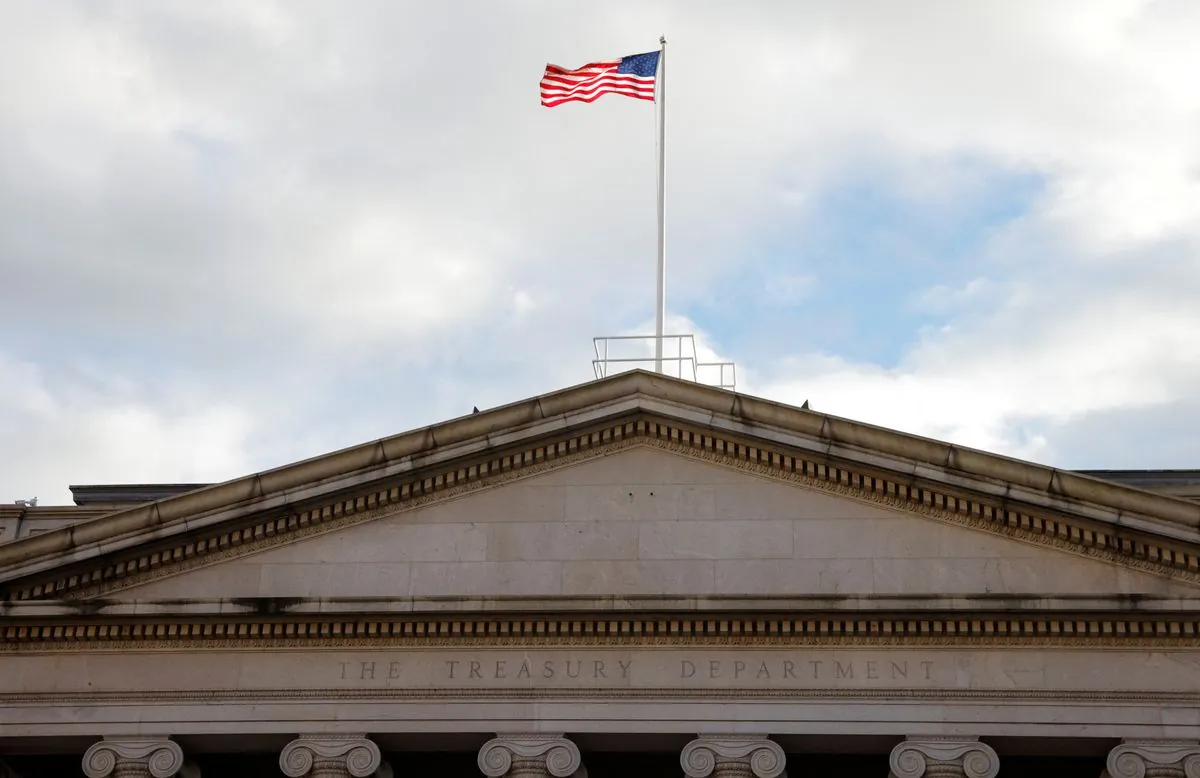Biden Proposes 15% Minimum Tax on Largest U.S. Corporations
The Biden administration has proposed a new rule requiring the largest U.S. companies to pay at least 15% of their profits in taxes. This measure aims to ensure fair taxation and close loopholes for big corporations.

The Biden administration has unveiled a new tax proposal targeting the largest U.S. corporations. This initiative, stemming from the 2022 Inflation Reduction Act, aims to establish a minimum 15% tax on profits for companies with annual earnings exceeding $1 billion.
This corporate Alternative Minimum Tax (AMT) is designed to address concerns about tax avoidance by major corporations. The U.S. Treasury Department estimates that approximately 100 of the nation's largest companies would be affected by this measure. Officials project that the AMT could generate $250 billion in tax revenue over the next decade.
The proposal comes amid ongoing debates about corporate taxation in the United States. Since the Tax Cuts and Jobs Act of 2017, which reduced the corporate tax rate from 35% to 21%, there has been growing scrutiny of effective corporate tax rates. Some large corporations have faced criticism for paying minimal or no federal income taxes in certain years, despite substantial profits.

Elizabeth Warren, a senator from Massachusetts, along with other Democratic lawmakers, has been advocating for the implementation of this tax. In the summer of 2024, they addressed a letter to Treasury Secretary Janet Yellen, citing research that revealed 55 large corporations reported $670 billion in profits but paid less than 5% in taxes over a five-year period following the 2017 tax cuts.
The corporate AMT proposal aligns with broader international efforts to establish minimum tax rates for multinational corporations. The Organization for Economic Cooperation and Development (OECD) has been spearheading a global minimum tax initiative, reflecting growing concerns about corporate tax avoidance on an international scale.
It's worth noting that the U.S. corporate tax landscape has undergone significant changes in recent decades. Corporate tax revenue as a percentage of GDP has declined, and issues such as corporate inversions have sparked debates about the need for tax reform.
The Treasury Department, led by Janet Yellen - the first woman to hold this position - has opened the proposed rule for public comment until December 12, 2024. A hearing on the rule is scheduled for January 16, 2025, allowing for further discussion and potential adjustments before implementation.
This proposal stands in contrast to the tax policies advocated by former President Donald Trump, who has expressed intentions to eliminate the corporate AMT if re-elected. Trump's previous tax legislation significantly reduced corporate tax rates, and he has suggested further cuts to 15%.
As the debate over corporate taxation continues, the implementation of this new rule could have far-reaching implications for large U.S. corporations and the broader economy. The outcome of this proposal will likely shape the future of corporate tax policy in the United States.


































